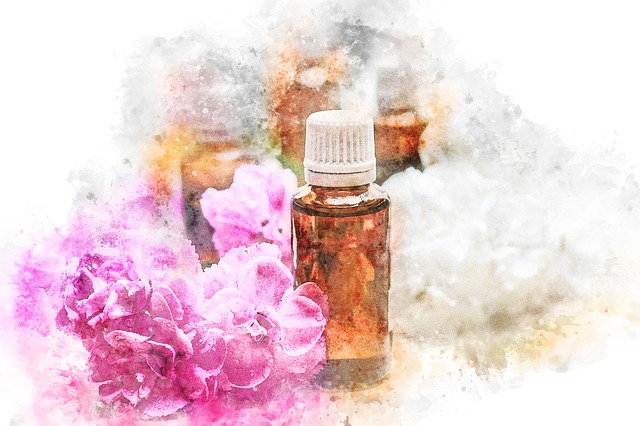Essential Oil 101 – Do You Need Essential Oils?
Most of us familiar with essential oils think of them as a means of refreshing the atmosphere in our homes and creating a serene and calm environment due to their natural and pleasant fragrances. However, using essential oils have certain health benefits that are unique. Among the numerous forms of alternative trends, aromatherapy i.e., a therapy administered through the use of essential oils is a popular trend. As a holistic mode of therapy, essential oil treatment is meant for rejuvenating a person’s mind, body, senses, and soul together.
Essential oils are the vital and volatile oils that are taken out from the leaves, flowers, bark, fruit peel, and stem of different kinds of plants. Aromatherapy can be done to improve mood, increase alertness, and lower mental stress and depression.
Contents
Why are Essential Oils Good for You?
Essential oils are preserved in their purest form from their parent plants; hence, they carry great antibacterial, antibiotic, antiviral, and anti-inflammatory properties. Certain essential oils can be used for cosmetic therapy to get a great skin, such as cleanse, tone, balance, and moisturize the skin. At a more advanced level, essential oils also create or restore hormonal and glandular balance and boost blood circulation in the body. When inhaled, essential oils send a signal to the neurotransmitters in our body. One research article elaborates how this signal, in turn, triggers a favorable response in the body, “…these signals cause the brain to release neuro messengers like serotonin, endorphin etc., to link our nervous and other body systems assuring the desired change and to provide a feeling of relief.”
Due to these amazing healing properties, essential oils can be used to treat common cold, flu, insomnia, ease muscle aches, and labor pain and also address serious health issues like Alzheimer’s, cardiac issues, and cancer. According to a research article,
Essential oils derived from aromatic medicinal plants have been reported to exhibit exceptionally good antimicrobial effects against bacteria, yeasts, filamentous fungi, and viruses.
What are the Best Essential Oils to Start With?
If you are interested in adding essential oils to your health and wellness routine then there are a few basic and simple essential oils that you can start with to treat common but bothersome health issues:
- Lavender essential oil is great for depression, anxiety, migraines, insomnia, pain, and fatigue.
- Lemon essential oil can be used to soothe flu and colds, heartburn and an upset stomach, brighten your complexion, and add highlights to your hair.
- Tea tree essential oil is the best remedy to heal and protect your skin from boils, sores, cuts, and bites; find relief from colds, congestion, bronchitis; condition your scalp and hair and get rid of dandruff and hair lice.
- Cinnamon Bark essential oil is great for curing inflammation, a sluggish or suppressed immune system, depression, erectile dysfunction, sugar cravings, and infections.
- Peppermint essential oil is helpful if you are suffering from nausea, digestion issues, bad breath, muscle spasms, joint pain, sinusitis, and skin irritations.
These are only a few essential oils among the multitude that can be used as starters to find relief from a certain range of common health issues.
Ways to Use Essential Oils
Essential oils can be incorporated into your health and wellness routine in the following ways, through inhaling, topical application, and the direct consumption methods. To use essential oils through the olfactory route, you can add an essential oil to a cold air or water diffuser, incense oil burner, or even put it in a water spray bottle and spritz it around your house.
You can also apply an essential oil topically on your skin; however, to avoid getting a sensitivity reaction, mix the essential oil in some coconut oil or light-scented lotion and rub it on your pressure points like the forehead, temples, the area behind your ear, chest and stomach area, arms, the soles of your feet, etc. You can also mix a few drops of the essential oil in your bath water. Both these methods are oral and can be safely used several times in a day; however, the direct consumption method requires a certain amount of care.
The direct consumption method of essential oils requires adding it to your food and drinks in the faintest amounts. This method is a bit complex and should never be undertaken without professional advice and administration guidelines, as an improper or overdose may lead to a toxic reaction.
Last but not the least, essential oils have shown potential in resorting hormonal balances, treating PCOS, Lyme disease, chronic fatigue, fibromyalgia, arthritis, pulmonary infections, and many other health issues. It also has potential in the treatment of cancer. However, in case of chronic illnesses, aromatherapy is a supplementary mode of therapy and should never be replaced with the standard medicinal treatment.
References
- Ali B, Al-Wabel NA, Shams S, Ahamad A, Khan SA, Anwar F. Essential oils used in aromatherapy: A systemic review. Asian Pacific Journal of Tropical Biomedicine. 2015 Aug 31;5(8):601-11.Retrieved from http://www.sciencedirect.com/science/article/pii/S2221169115001033%20-49
- Reichling J, Schnitzler P, Suschke U, Saller R. Essential oils of aromatic plants with antibacterial, antifungal, antiviral, and cytotoxic properties–an overview. Complementary Medicine Research. 2009;16(2):79-90. Retrieved from https://www.karger.com/Article/Abstract/207196

